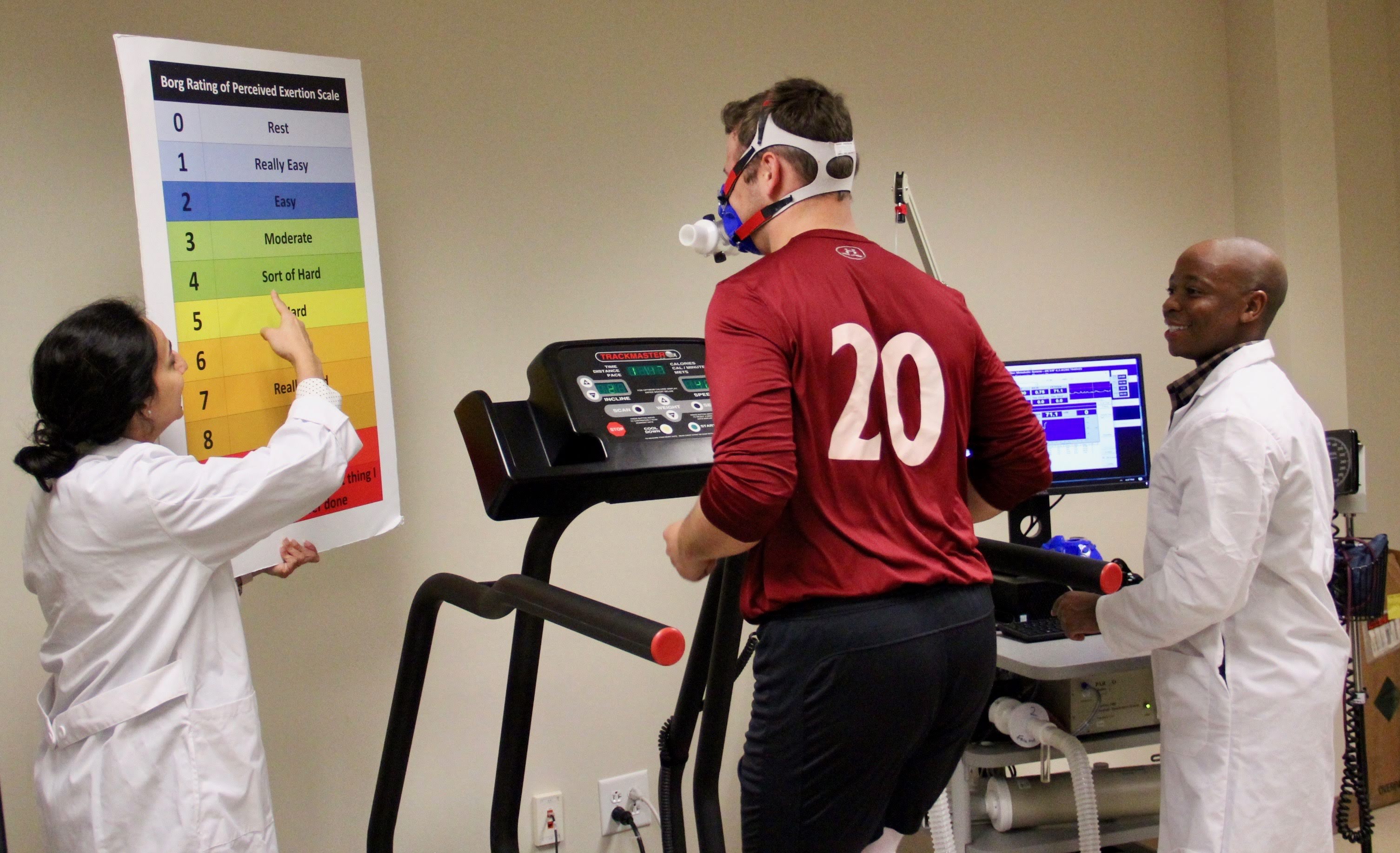Through the Peak Performance program, Elon’s physical therapy students conduct research while working with Division-1 athletes and athletic professionals.
Athletes are constantly striving to improve their performance. At Elon, collaboration among multiple disciplines aims to help student-athletes do just that by focusing on the mind, body and spirit.
Through the Peak Performance program, Elon Athletics partners with the Department of Exercise Science, School of Health Sciences, Student Health and Wellness, data analytics program and Elon Dining to look at all facets impacting individual performance.
“In the past few years, Elon Athletics has started to view student-athlete well-being and success in more holistic terms,” Deputy Director of Athletics Mike Ward says. “We’ve always had athletics trainers and strength coaches. But now we’re a bit more deliberate in examining how we all work together, what our comprehensive support network for student-athlete performance looks like and where we need to fill gaps.”
One of the most active participants in the program is the Department of Physical Therapy. Assistant Professor Shefali Christopher, who serves as the department’s liaison, says the collaboration has evolved from focusing on treating injuries to providing risk-factor assessments to prevent injuries. This allows trainers to tailor individualized strength and conditioning or rehab techniques and ultimately maximize performance.
As part of the program, DPT students get to start conducting quantitative research with student-athletes during their first four weeks on campus. They then analyze the collected data and present it to coaches and athletics staff. “For our students to get the opportunity to work with Division I athletes is meaningful,” Christopher says. “This doesn’t happen at other schools.”
Ward says this collaboration spans the entire student-athlete experience. For instance, when recruits visit Elon, they tour the Gerald L. Francis Center and learn about the kinds of testing that will be available to them to enhance their performance. Once they come to Elon, athletes are able to engage in a number of tests to determine everything from body composition and bone density to structural imbalances and movement inefficiencies.
And if they get injured, Ward adds, athletes have some of the nation’s best physical therapists and PTs-in-training working to get them healthy. This collaboration gives Elon an edge. “The team of experts in the Francis Center has been incredibly generous with their time and heavily invested in the success of our young people,” Ward says. “I can’t stress enough how impactful this relationship is on the performance of our student-athletes and the success of our teams.”
“The science of wellness and human performance continues to advance,” Ward says, “and we’ve had to broaden our team to stay contemporary. We want to be a national leader in this area.”
Christopher says the Peak Performance program has already led to the creation of a sports residency program that will allow for more in-depth interpretation of biometric data to help student-athletes perform to the best of their abilities. She sees a greater emphasis in the future on data analytics. “I see the program morphing into a sophisticated system with all hands on deck to have top-notch, high-level athletes and make more informed decisions,” she says.
As the program expands, Ward expects it will continue to dive more deeply into enhancing wellbeing, focus, performance optimization and happiness. Student Health and Wellness already provides sport psychology support for athletes and access to clinicians from a neighboring institution through the program, something Ward expects will continue to evolve. “The science of wellness and human performance continues to advance,” he says, “and we’ve had to broaden our team to stay contemporary. We want to be a national leader in this area.”
One area that will be different this year from prior years is the return-to-play protocols since athletes are experiencing extended downtime due to COVID-19. “We’ll take a very careful look at how we prepare our student-athletes for the rigors of training and competition after longer off-seasons than their bodies may be used to,” Ward says. “The NCAA Sports Science Institute will be engaged in this work, and we hope to contribute our own analysis.”



